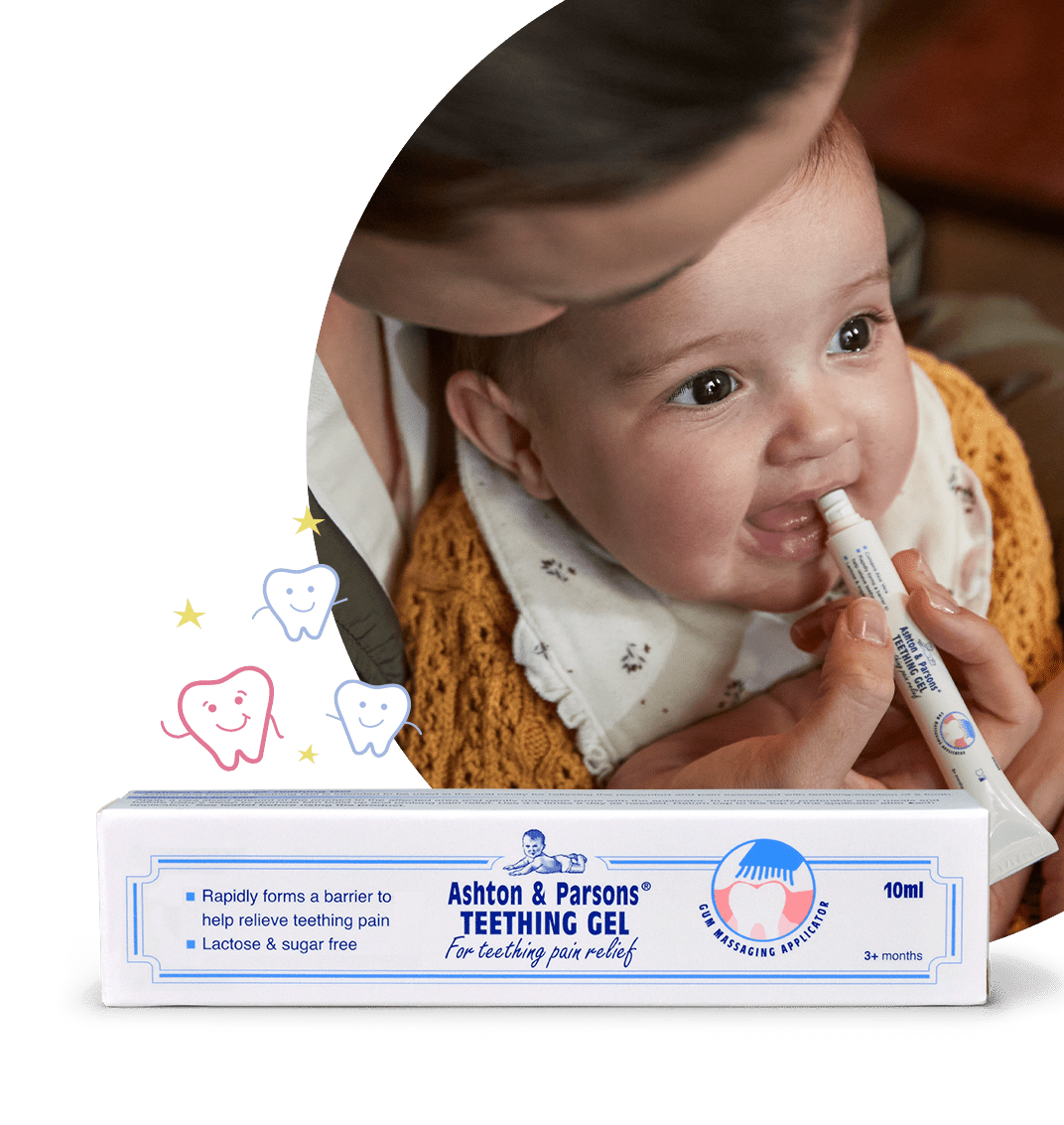Tracey Stone: Is My Baby Teething?
Tracey Stone is a Health Visitor, and able to provide expert guidance on all things teething. Currently a registered practising Health Visitor in the community working with children and their families, Tracey also supports families in the online community with issues related to health and wellbeing. She is a qualified Paediatric Nurse with over 20 years’ experience and a Nurse Prescriber. She has also helped establish a respite service for Children with Special Needs.
Signs and symptoms of teething can vary for each child and family. Sometimes you will suddenly notice the first gleam of a white tooth popping out of either your babies upper or lower gum. Other times however you may notice your baby beginning to show a change in behaviour making you wonder what on earth is going on!
There is a huge amount of information available to read about teething. Some of it suggests that as teething is a normal process, just like hair and nails growing*, it shouldn’t cause the symptoms many associate with this stage of development. However, a parent is the one who knows their little one the best so they are most qualified to work out when something is wrong. Knowing what to possibly expect at this time in your little ones life can make this stage much more manageable for all.
Their first tooth in most babies will have arrived by the time they are 6 months old. Symptoms mostly seem to begin around 3 to 5 days before you can see the tooth, but this again varies from baby to baby. The most common worries to look for in your baby are lots more drooling with maybe a facial rash, perhaps they’ll be in a more irritable mood or crying. Teething can bring with it pain, tiredness from disturbed sleep, red and tender gums, hunger as their appetite can reduce and possibly a higher temperature to their normal. Alongside this general discomfort, they can also begin sucking more or biting and chewing on hard objects. Ear rubbing or pulling, a runny nose and one or both of their cheeks red, hot and flushed. At their other end, looser stools have also been suggested as a symptom so at times nappy rash can also show a potential sign.
Most children will have grown their full set of 20 milk teeth by their 3rd birthday, so it is worth being aware of the signs and symptoms of teething up until this age as being a possible cause for their discomfort. The bigger the teeth, then the more severe these symptoms can be, so it is worth knowing this when you little one grows their back teeth, from about 12 months of age.
The symptoms associated with teething have never been confidently linked so it is important to make sure it is not something else that is causing the upset in your little one. At this stage in their lives its OK to expect the symptoms to suggest teething, but it is always worth getting them checked if you are not sure. Your HV and GP will have a good knowledge of teething, so do ask them questions if you are worried. When your child reaches the age of 5 or 6 years then the tooth fairy may begin to make an appearance as the milk teeth begin to give way to the permanent adult teeth. This stage does not seem to cause similar upsetting symptoms for the child and their family.
*(consultant Paediatric Dental Surgeon at Our Lady’s Children’s Hospital in Crumlin, Kirsten Fitzgerald,) cited here https://www.netmums.com/baby/parents-are-just-making-it-all-up-about-teething
General advice only, Tracey does not endorse the brand.






